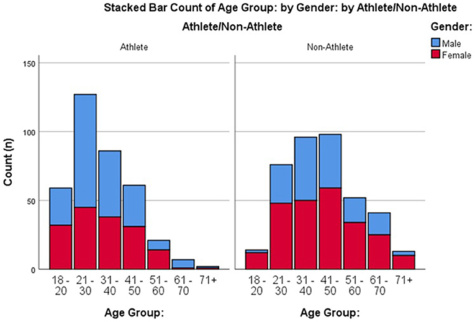
Brookelynn Hodgin | Writer
March 13, 2022
About 35% of all athletes have experienced or continue to experience mental health crises. This, however, does not account for the number of athletes who have undergone struggles and didn’t speak up.
Stanford women’s soccer standout goalie, Katie Meyer, took her life last week as she continued to battle through mental illness. This is, yet again, sparking the conversation on mental health, especially in athletes. When is enough going to be enough? It seems each year, there is the tragic news of another star-athlete falling victim to depression, anxiety, and stress, and each year headlines repeat, “End the stigma.”
The stigma still exists, but luckily, there is a movement to try and dismantle it. Throughout the years, many groups and organizations have been formed—typically in honor of an athlete who took their life—to shed light on the uncomfortable topic.
Most people don’t realize that athletes undergo some of the highest levels of stress-performance anxiety. Many athletes also experience maladaptive perfectionism, in which they set unrealistic standards for themselves not only in sports, but in every other aspect of their lives. “At the end of the day, we are all people who need support to get through all of the pressure to perform 100% of the time,” senior volleyball player Audrey Della Vedova said.
Della Vedova, who will be playing Division I women’s volleyball next year at Boston College, had the additional stress of the college recruiting process—a process that can destroy a student-athlete. “You are constantly comparing yourself to everyone else,” she said. “I have had to work very hard to come to a point where I am confident in my own abilities and no longer compare myself to others.”

Extreme perfectionism in this way makes it so that athletes no longer view themselves as people, but as their successes and failures. If they don’t reach their own standards, which are typically so far out of reach that they are near impossible to meet, they view themselves as failures. Athletes, especially those who play at the elite level, have a tendency to blur the lines between themselves and their sport. They begin to confuse who they are as a person with what sport they play. Their identity and sport become intertwined, and their role as an athlete takes over their life. Once an athlete begins to succumb to this mentality, their sport and their performance in it become how they value themselves, inevitability harming self-image.
Because of this, it is also so easy to lose track of the “why?” and many athletes struggle with figuring out the reason behind why they even play their sport. Their motivations become twisted with their need for athletic validation, and instead of playing for themselves, they play for others whose opinions really shouldn’t matter.
“The moment that others make something you love a job is the moment you truly lose the love and passion you have always felt,” senior football and basketball player Tanner Mehrens said. “It is in fact a job, but above all other things sports are a passion and is supposed to be fun. That’s why balance and mental health is important to coping with continuous stress that comes with competing at a high level.” Mehrens will be playing Division I football next year at Princeton University.
At the end of the day, sports are just sports. Despite the love many people find in them, they should never come above your love for yourself and your pursuit to grow as an individual. You come before anything else, including sports. Ending the stigma will rely on letting people know it’s okay to take a break and to stop trying to meet the expectations of others. At the end of the day, you only have yourself, so take care of yourself.

Leave a Reply